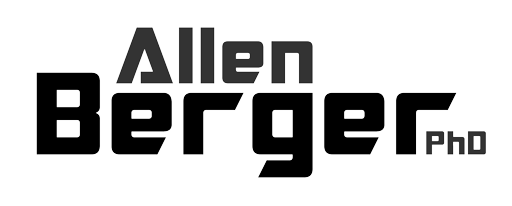By Melanie Gulde of Treatment Court Program in Washington County New York
In March 2020, the world as we know it changed not only for individuals in recovery but also for people working to help them stay sober. Our Treatment Court Program in Washington County New York oversees felony level offenders who have serious addictions. I have been in this position for 17 years and had never imagined that we would be scrambling to monitor our caseloads from outside the courthouse walls. The initial instructions we were given from our supervisors was to go home and do what we could from there until we could figure out how to proceed. I collected the participant’s email addresses and phone numbers and began calling them individually and emailing as a group. I was given a laptop that was equipped with a VPN which gave us the ability to connect with each other remotely. Every single participant was able to step up and learn how to engage in video calls.
When Dr. Berger first released 12 Stupid Things That Mess Up Recovery in 2008, I was hooked. I immediately connected with what he wrote. This was a fantastic book to give to people in early recovery and I came up questions to go along with the first few chapters. I gave copies of the book to the jail for the participants to read if they were incarcerated before starting the program or on a sanction. (Some of those copies got “lost” but I really did not care as long as they were being read!) Many of the questions were based directly on the reading, but individuals were also asked to share from their own personal experiences and give examples of their own history of those 12 stupid things. Most everyone in our Treatment Court Program had previous attempts at sobriety but for various reasons could not remain sober. They were able to see connections with where they may have gone down the wrong path and ended up in a Treatment Court Program. Some of the questions were specifically designed to allow the individuals to look at their behaviors and how would they alter them moving forward. “Awareness starts the process of change” is one of my favorite quotes. It teaches us to see that when we become aware of that which holds us back, we can then focus on changing those specific steps from that point on.
I found the Let’s Talk Hazelden series on YouTube last April and was thrilled to have a visual platform to present Dr. Berger’s material. The participants were emailed the Achieving Emotional Sobriety (staying centered and connected) segment and I came up with questions to go along with the video. It was a mix of their own personal experience as well as specific questions on the information he presented. The participants and I were able to connect via Skype as a group and go over all the questions and answers. This allowed them to share not only what they learned, but also what they were comfortable sharing from their own experiences past or present. We also covered the Reckoning with Your Addict Self segment. I loved hearing individuals share what they would say to their recovery selves and to their addict selves. This was a great activity. I respected their honesty and their ability to be vulnerable while keeping a sense of humor too. We went over the Coping with Life on Life’s Terms clip and talked about how sometimes we must sit in our feelings as uncomfortable as they may be in order to grow. There were individuals who were unable to stay on track during this time which was heartbreaking. The lack of personal connections was just too much to handle for some. Zoom support group meetings were a helpful tool, but nothing can replace sitting with another likeminded person to give (and receive) real eye contact.
All the 12 Things books have been a helpful resource for me both in my work as well as my own recovery. 12 Smart Things to Do When the Booze and Drugs are Gone came along at a time when I was looking for a way to add more depth to my sobriety. I needed to learn what my optimal recovery looked like. I was sober for years at that time and connected with the concepts of being able to be truer to myself in a manner that was deeper and more authentic. I am incredibly grateful that Dr. Berger has chosen to share his skills, knowledge, and experience with the world in the manner he does. My time with Treatment Courts will be ending within the next few months. I’ll be moving on to a Clinical Director position with the Divided Sky Foundation. I’m excited to have a new way to continue to help others in recovery. Learning about emotional sobriety has helped me grow as a person in recovery and continue to give back what was so freely given to me in the process. Thank you, Dr. Berger!

